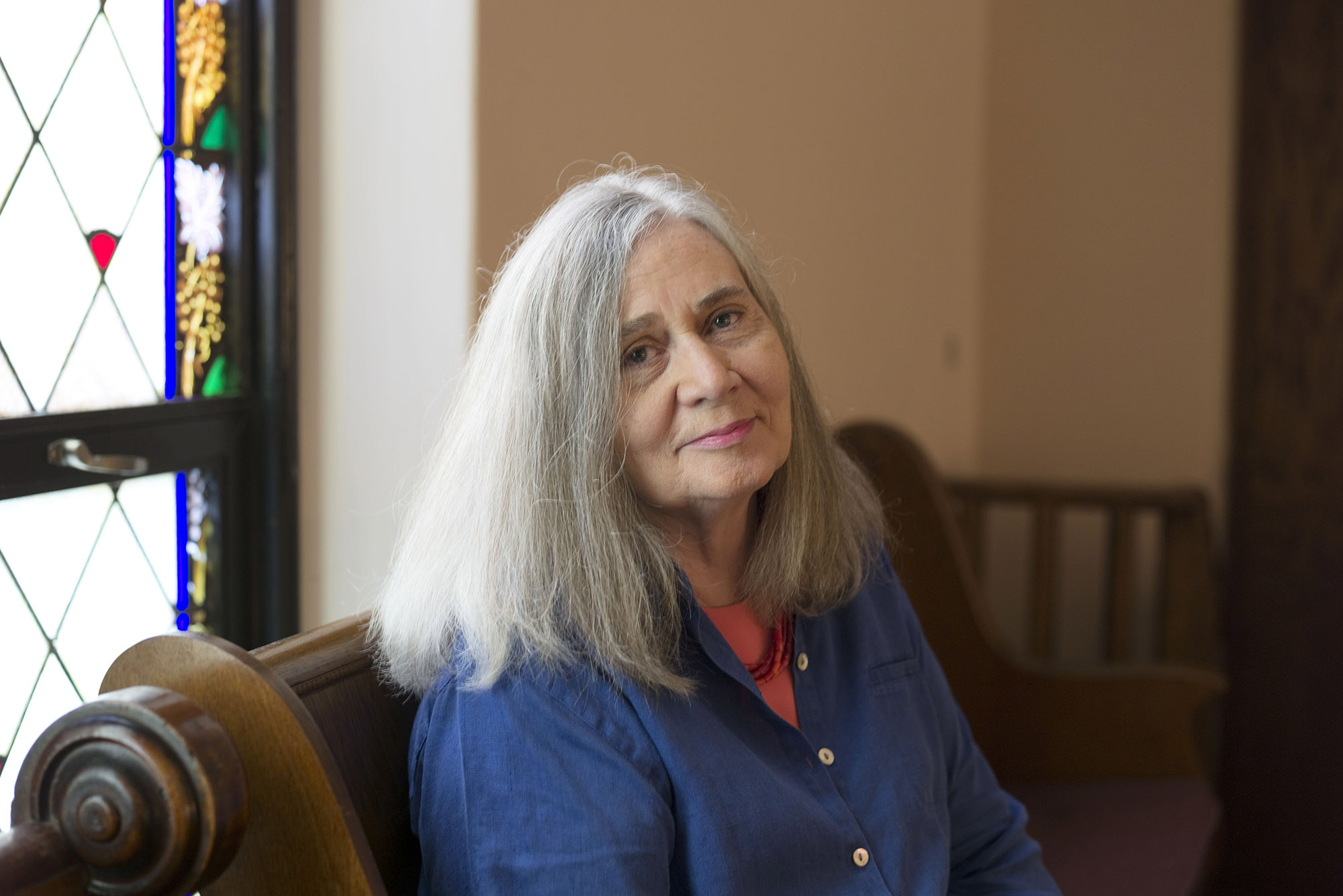Renowned Author Marilynne Robinson to Speak on Campus April 11

“I think it is a wonderful property of books that they really can take on their own lives,” says acclaimed author Marilynne Robinson. “I think this is what all writers hope for their creatures, that they will be adopted into other minds.” Photo by Alex Soth / Magnum Photos
Renowned Author Marilynne Robinson to Speak on Campus April 11
Pulitzer Prize-winner will join Marsh Chapel Dean Robert Allan Hill for this year’s sold-out BU Conversations in the Arts & Ideas
Toward the end of his presidency, Barack Obama told Marilynne Robinson that one of his “favorite characters in fiction is a pastor in Gilead, Iowa, named John Ames, who is gracious and courtly, and a little bit confused with how to reconcile his faith with all the various travails his family goes through.”
Obama was referring to a character in Robinson’s Pulitzer Prize-winning 2004 novel, Gilead. By the time of their conversation in 2015, Obama and Robinson were old friends: they’d met in 2012, when the former president awarded Robinson the National Humanities Medal, one of the highest honors a civilian can receive.
Robinson has written five highly acclaimed novels, including 1982’s Housekeeping and Gilead, as well as a number of nonfiction essays, articles, and books. And on Tuesday, the award-winning author will join Robert Allan Hill, dean of Marsh Chapel and chaplain to Boston University, for a conversation about her life and work, for the latest installment of the annual lecture series, BU Conversations in the Arts & Ideas. Previous speakers have included author Zadie Smith, filmmaker Werner Herzog, and choreographer Bill T. Jones.
“I am just so happy that Marilynne Robinson is coming, and I’m so thrilled to be part of it,” Hill says. “She’s the preeminent American writer in many ways, and one of my very favorites over the years. Her work has been a great help and inspiration to me for 20 years, so to be able to sit and talk with her is a real gift and a real joy.”
Hill and Robinson will speak on Tuesday, April 11, at 6:30 pm in the BU Photonics Center, Room 206, at a sold-out public event. While tickets are no longer available, a limited number of seats may open up on the night of the event for those who arrive in person. The next morning, Robinson will meet with interested students for a more informal conversation over coffee in the Kilachand Lounge.
“Marilynne Robinson has a unique voice in American letters,” says James Johnson, College of Arts & Sciences professor of history, and one of the organizers of the BU Conversations in the Arts & Ideas series. “There’s really no other writer who writes about the things she writes about with such eloquence and insight and wisdom.”
In addition to her Pulitzer Prize and the National Humanities Medal, Robinson has earned a number of awards and accolades for her work. Gilead also won the National Book Critics Circle Award in 2005. Her first novel, Housekeeping, won the Hemingway Foundation/PEN Award in 1982 and was shortlisted for the Pulitzer Prize that same year. Her novel Home—which is the second of four books that feature the Gilead characters—won the Los Angeles Times Book Prize in 2008 and the Orange Prize for fiction in 2009. In 2016, she received the Library of Congress Award for American Fiction and in 2021, all four Gilead novels (including Home, Lila, and Jack) were selected for Oprah’s Book Club.
Robinson’s Gilead novels have resonated with many, many people. But publishing her work is a little bittersweet, Robinson says.
“I always miss my books when they are done,” she says. “They are on my mind for years, consuming most of my time, infiltrating my dreams, and then they are done with me. I feel abandoned for a little while.”
Still, it’s a process that’s gratifying—and worthwhile.
“Of course I am deeply pleased that they are meaningful to people,” Robinson writes. “I think it is a wonderful property of books that they really can take on their own lives. I think this is what all writers hope for their creatures, that they will be adopted into other minds.”
Robinson, who was raised as a Presbyterian and later became a Congregationalist, weaves into her work themes of—and big questions about—faith. She occasionally preaches, too, at the Congregational United Church of Christ in Iowa City, Iowa, where she lives.
“Her theological imagination and her capacity to articulate a sense of grace in a powerful set of ways have been very meaningful to me,” Hill says.
For Robinson, the experiences of preaching and writing have offered valuable lessons.
“Preaching has taught me that I am no preacher,” she says. “It has taught me to be very grateful that there are people who have this beautiful, difficult gift. Writing is an endless drawing on the capacities of the mind—memory, imagination, language, the sense of the beautiful and the plausible. Writing can lead to a deep acquaintance with one’s mind—not really a knowledge of it, since there is always more mind to be known. This is an important thing to know about oneself and to assume about all other people.”
Comments & Discussion
Boston University moderates comments to facilitate an informed, substantive, civil conversation. Abusive, profane, self-promotional, misleading, incoherent or off-topic comments will be rejected. Moderators are staffed during regular business hours (EST) and can only accept comments written in English. Statistics or facts must include a citation or a link to the citation.